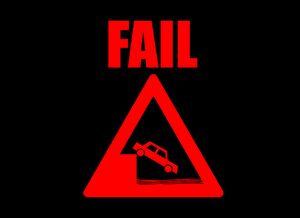
I have been seeking the underlying motivation for dysfunctional behaviors commonly found in this culture. Why do we do things that obviously don’t work personally, inter-personally, and socially? Its not like anyone believes smoking is good for them, or that being a resistant ass is a winning social skill. Yet it seems everyone has some loosing behaviors they just can’t kick. Sometimes they hide the behaviors under a veil of righteous justification. But that does not change the negative consequences the behaviors create.
When I first started looking at this a couple years ago, my attention was being drawn to the common pattern to a lot of these type behaviors – trying to get something for nothing. A lot of people demonstrate a feeling of entitlement to getting their needs and wants met without any participation on their part. This kind of thinking is inherently flawed because if everyone is entitled to this, than who is going to do the providing of these wants and needs? The whole mindset is self limiting whether you are talking about groceries from the store or love from a partner. Giving and receiving have to be balanced to be sustainable.

The motivation behind this something for nothing consciousness seemed to me at the time to be easily understood as a simple survival pattern from our reptilian basal brain. The more resources we can acquire for the least amount of effort on our part is a winning strategy in a competitive survival environment. This strategy does not work inside a cooperative civilized environment, but I thought it might be an instinctual bit of left over programming from an earlier time.
This conjecture may be true, but it does not explain a lot of other unworkable patterns I was seeing in folks. For instance, why would a child adopt a pattern of separation and resistance to parents at an early age when their very survival depended on the good graces of said parents? Why do folks adopt self destructive addictions? Why do people disobey traffic rules? Why do people withdraw from life when participation will get them all the things they constantly complain they are lacking in life? More understanding was needed.

After lots of inquiry the finger seemed to be pointing at the fundamental narcissism of youth, since maturity seemed to resolve most of the observed issues. We are born inherently narcissistic simply because our brain is not complex enough to even grasp that other people have their own thoughts and feelings. Till the age of about seven, we project our thoughts and feelings into them and see them as extensions of ourselves. Some people do this for a long time past the age of seven.
Narcissism becomes a primary tool of survival in which the goal of life is to get attention. The belief is that you are entitled to getting your needs met, so if that is not happening then somehow people are not seeing you are there. If they did they would drop everything and tend to your needs. This folly gives rise to addictions to anything that diminishes your awareness of the truth all around you that is telling you that you are not the center of the universe. Drugs and behaviors that block out this truth become much more important than any possible negative consequences that might be attached to using these things.

Again, this perspective may have some truth to it, but it still was not the deepest bottom to the motivation puzzle. Why would people who are past the immature narcissism stage still persist in unhealthy behaviors despite the consequences? What is it they are after? Why would someone refuse to be happy and insist on being unhappy? Why would someone deny themselves joy and pleasure in life by refusing to participate in ways that will produce the enjoyments they say they want? The old something for nothing idea seems to fit here, because everything good requires specific forms of participation to achieve them. The aversion to the work of participation looks like a good candidate. But then I see folks standing on street corners begging for cash all day in the hot sun. They are putting in muck harder work and in more unpleasant circumstances than they would by simply having a job. But they don’t want a job. They want their freedom.
Freedom started sounding like a good core motivator, but freedom to do what? How much freedom in life does a person begging on the street have? The freedom to sleep in the alleyway of their own choosing? Freedom sounds good, but it is also coming up short. It feels closer, but not quite there. Freedom was last weeks thought. Where am I today?

Today I am leaning toward something a little further out – the desire to feel unlimited, unrestricted, unconditional. How long have we been told that true love is unconditional love? There is no such thing on this planet. Our reality exists under certain universal laws. One such law is the law of cause and effect. Everything that happens creates impact and reaction. Impact and reaction are the conditions that deny anything ever being unconditional. Yet we persist in clinging tightly to this illusion even though no one has ever experienced it. Maybe outside this universe God loves us unconditionally, but that seems unlikely since God created a conditional universe for us to live within. If you are fond of the Old Testament, there was a lot of conditional love presented there.
So why are we so attached to the idea of unconditional love? What exactly do we want from it? Why do we want it? I suspect we want to be able to do what ever we want at any time and still get approval and support. We want to feel unlimited, even God-like. We don’t want to have to meet other people’s expectations or requirements and we certainly don’t want to have to put up with their judgments. We want just being ourselves to be enough in this world. Whatever we think, feel, or do should be accepted and supported because after all we are who we are!

Yet life does not accept us as we are. We want to believe that we are entitled to be loved for who we are no matter how we act or feel. But the ugly reality is nothing in the world can ever have any idea who we really are on the inside. Our insides are invisible to the world. All they ever can know is how we act, what feelings and thoughts we express. As such, we can never actually be judged, only our actions can be judged. And every action creates a reaction in this universe. Reactions are judgments – positive or negative depending upon whether our action serves or dis-serves those around us. Generally we dislike the negative reactions as they try to inhibit us and we don’t like to be inhibited. We want to be uninhibited, free, and without limits. Because we hate limits, we resist them, even ones that are for our own good.
We all know French fries are bad for us, but we refuse to be limited by the frailties of our dumb body. We know being disrespectful will get us in trouble, but we do it anyway. We know refusing to give fair value exchange for what we receive will cost us future relationships and support, but we still try to get something for nothing – we call it getting a good deal. The examples go on forever, but this desire to be able to do whatever we want seems to explain all my previous motivation queries.

Why does this matter to me? Well, I am trying to unravel my own insanity. Why do I do things that don’t align with how things really work. Why don’t I care that it does not work and do it anyway? Is it just hope that I can get away with it, or am I driven to defy the limitations and reach for that feeling of being unlimited? What is that all about?
This gives me a new field of inner investigation. One of these days I should figure it all out and then what? Some philosophers teach that at our core is a deep need to transcend; a need for self-actualization. Maybe that is the core of our insanity.
